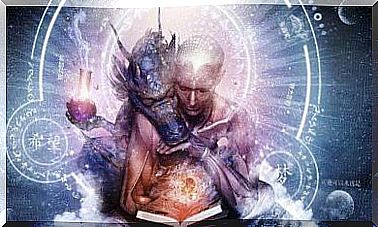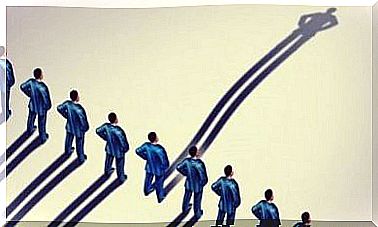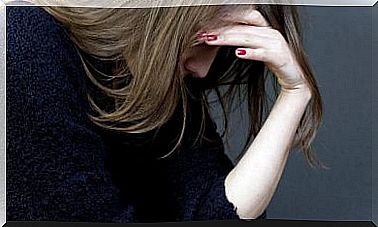Do You Know What Characterizes Emotional Co-dependence?
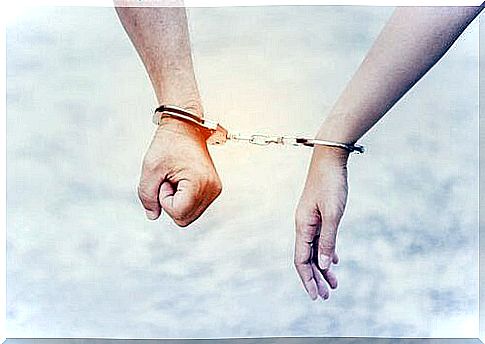
Codependency involves an addiction to another person’s dependence, whether in couple relationships or within a family (for example, between a mother and her daughter). Thus, regardless of the context, in very marked dependency relationships, the dependent person feels that he needs the other, just as he needs his heart to continue living. We would speak in this case of a psychological dependence in which the emotional part plays an essential role.
So addiction goes far beyond the simple desire to be with someone. It has a link with the idea that the other is indispensable or irreplaceable: his presence is a necessary condition for us to feel good. It is a need that must be met on any path to happiness, no matter how particular and specific it is.
Other times, it happens that it is not just one member of the couple who is attached to the other: the two depend on each other, but in a different way. We enter, in this case, into what is called emotional co-dependence. In a co-dependent relationship, there is a dependent member whose happiness ultimately depends on the presence of his spouse and the fact that he does not abandon him. On the other hand, the other member of the couple is also dependent, but at the own dependence of his partner.
Codependency or altruism?
To clarify things, the dependent person needs his / her companion and the dependent needs to protect the latter, to take care of him / her, to help him / her and to self-help. concern for his well-being. It is true that seeking to take care of your partner is necessary to live a good relationship, but it must be done in an altruistic way, showing love towards this person: these actions must not only be are made only to nurture an underlying addiction.
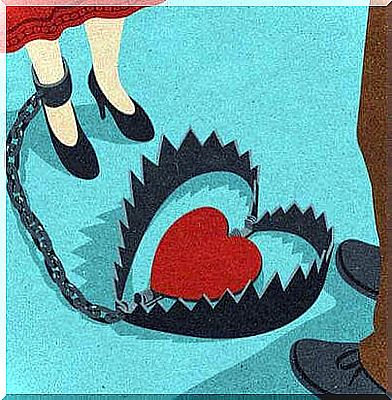
It is as if looking after the safety of the other, protecting him / her excessively or caring for them as if they were unable to do it on their own makes the co-dependent person stronger. and strengthen their self-esteem. Moreover, this way of acting is like water which quenches the thirst of the addict; the pieces of the puzzle eventually fit together perfectly and frequently reinforce the addiction.
So what is the end result of this dynamic? The co-dependent couple never lives a healthy and satisfying relationship: the suffering and the feeling of emptiness within this relationship become omnipresent. In the rare event that the relationship is maintained over time, both people would have to endure extremely intense discomfort as they would eventually lose their own identity.
Symptoms and characteristics of emotional codependence
Even though the protective person may appear strong, the opposite is true. In reality, it is only when the person takes care of the other that they also take care of their self-esteem. So, if you want to know more precisely the symptoms of emotional codependence, you can continue reading this article.
Self-esteem shines in its absence
As we said before, co-dependent people have low self-esteem; they try to replace it with the feeling of usefulness and with the idea that they would be precious to other people, more precisely to their companion / mate.
In very many cases, this deficiency is due to an anxious attachment pattern that began to form during childhood, in the relationship that has been established with the main reference figures. Thus, it may be that the person was only rewarded when they did something for others, and this is how they learned that their worth only depended on what they could bring to others. people.
A search for control over the other person
Since their self-esteem depends on others, these people tend to use manipulation and control as a way of monitoring “their victim”. In other words, to feel valuable and useful, they need the other person to continue to maintain dependent behaviors, and only by controlling the latter can they achieve their end.
Another common strategy for maintaining dependence on others is to undermine their self-esteem. Yes, making the other person feel useless and think they need someone to help them. This is when the co-dependent person appears, seemingly selflessly, as if it were a sacrifice.
The fear of the independence of the other
The moment they realize that the other person has undertaken something independently, such as making a decision on their own, co-dependent people panic and try to redress the past situation. It is therefore not uncommon to see them abandon what they were doing to help the other and keep their superior position of “protector”.
Obsession for the couple
In their minds, the couple is a source of constant supervision. They therefore become obsessive, end up losing themselves and believe that making life easier for their companion is the only mission from which they can derive constant well-being. On the other hand, if they make a single mistake, they find it hard to forgive themselves and are inundated with frustration.

A huge need for approval
The approval of others is a universal personal reinforcement and, in many cases, a valid source of information to assess our actions; however, when we place all our self-esteem in the judgment that others may pass, we have a problem. So, co-dependent people have a great need for approval that they try to fill, without paying much attention to how they get there. And who, other than the dependent person, can give immediate approval?
They feel responsible for the emotions of the other
Even though we know that other people’s emotions are not ours, very often we can feel responsible for how people feel. There is nothing strange about it, we have just been educated that way. “Don’t make daddy angry”, “if you do that mom will be sad”.
However, this thinking is much more marked in co-dependent people: they believe that the other is good or bad depending on how they themselves have acted. So very often they end up believing themselves responsible for things they actually have nothing to do with or feel guilty about something they didn’t do.
They reproach their companion
On the one hand, they need to feel useful by helping their partner or another person around them who is dependent on them. However, the moment he / she does something that contradicts this pattern, they tend to blame him / her for it, as a strategy to make the other feel bad and change their behavior. Expressions like “after all I have done for you, this is how you thank me”, “you don’t realize the sacrifices I make for you”, “I left everything for to see you happy ”are therefore very usual.
Do you identify with one or more of these symptoms? Although this way of acting in a relationship may surprise us, it is more common than we may think. Therefore, if you feel identified, analyze what is wrong, give your self-esteem a chance, and dare to experience a healthy relationship.

